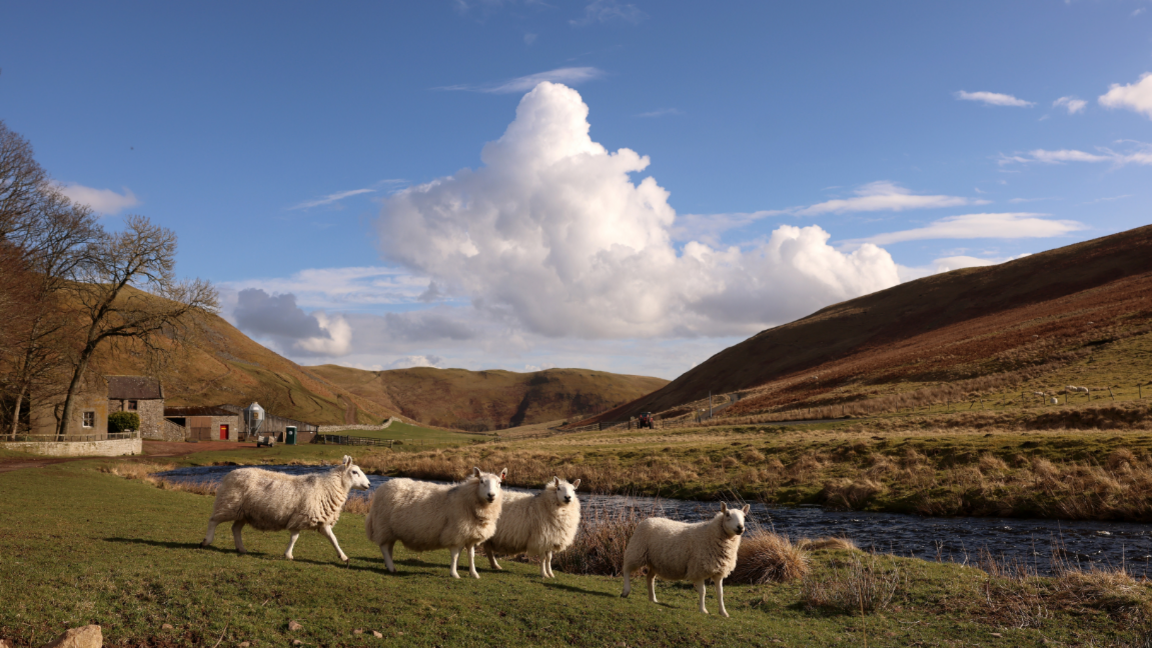The neighbours taking turns to boil the kettle

Jaycee Charlton and Katherine Singer try not to put their kettles on at the same time as it can overload their shared generator
- Published
Residents of the remote Upper Coquet valley in Northumberland have never had mains electricity. Now work is finally under way to connect their homes to the National Grid.
When Jaycee Charlton gets up in the morning, she listens to see if her neighbours the Singer family are awake too.
"If I hear them moving around, I'll give them five minutes to put the kettle on," she says.
"If both our kettles go on at the same time, we're plunged into darkness."
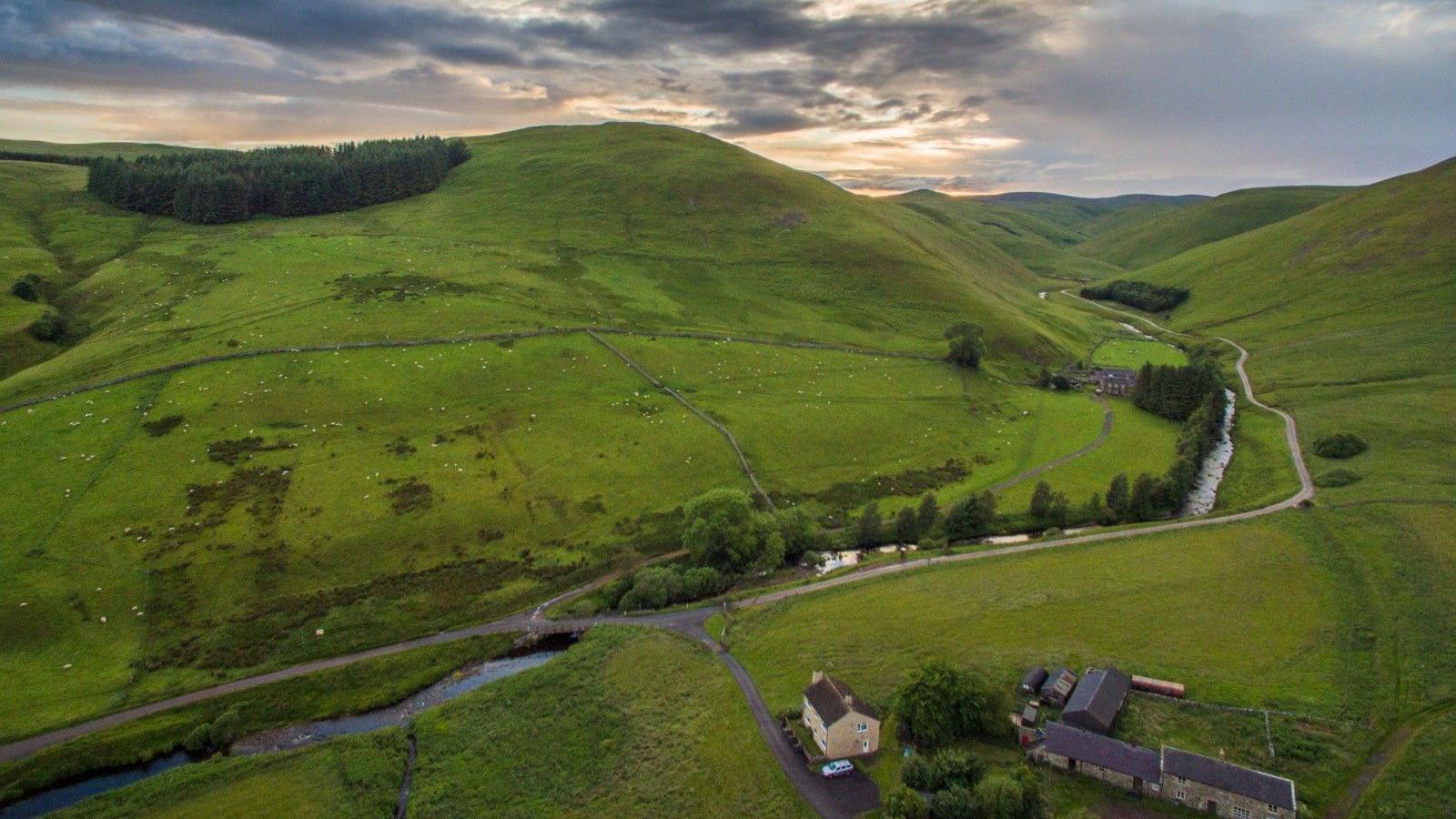
The Upper Coquet valley in Northumberland is one of the most remote parts of England
The two families are among an estimated 500 households in Northumberland who live off-grid, not from choice, but because their homes were never connected during the electrification programmes of the 20th Century., external
Their adjoining houses in the Northumberland National Park are powered by a diesel generator, which comes with its limitations.
"It needs constant maintenance and monthly oil changes" Chris Singer says, adding: "It's very expensive, it costs up to £10,000 a year to run".
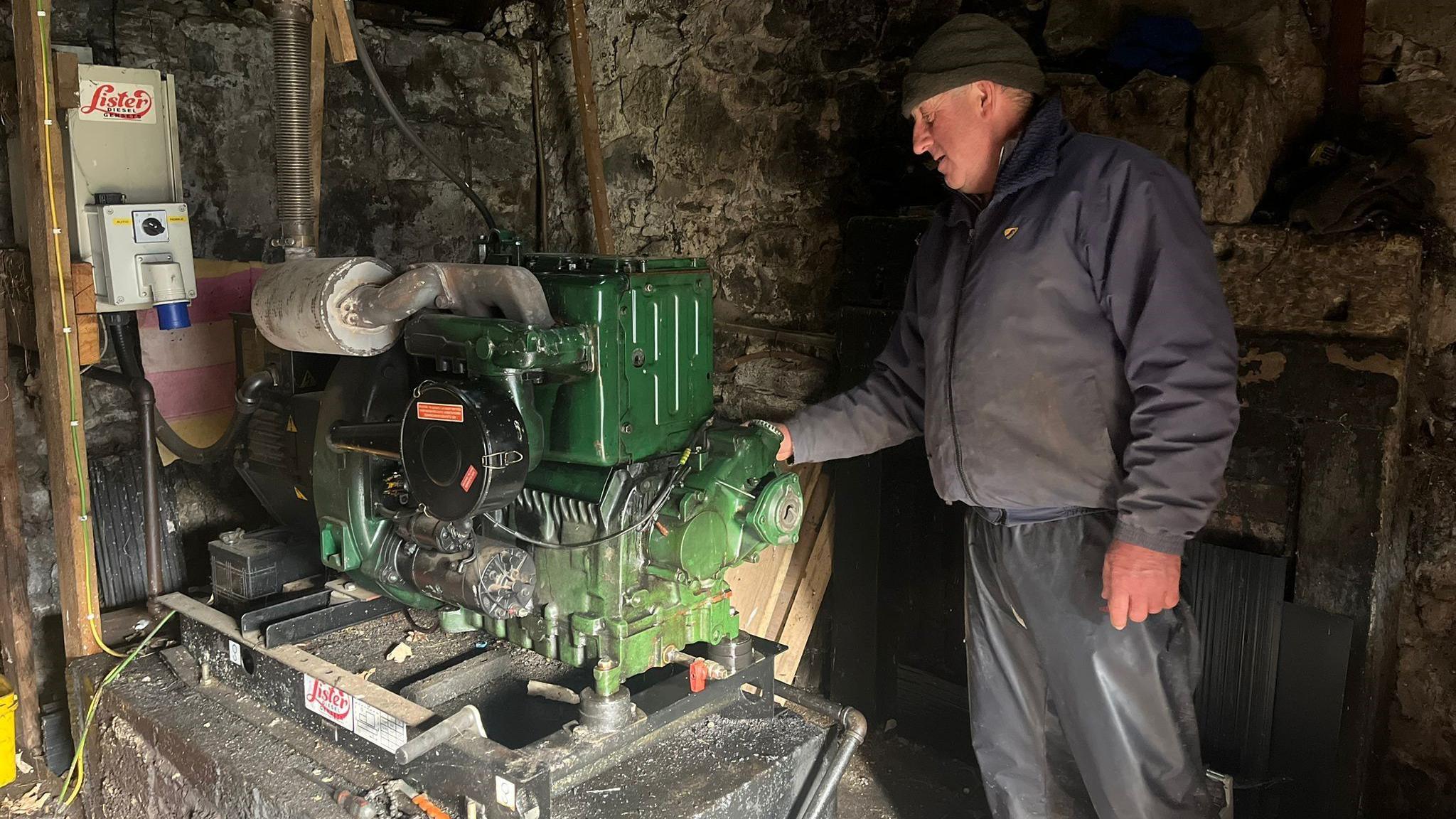
Most off-grid properties rely on diesel generators
"We can't really go away either," Katherine Singer adds.
"It's only Chris who can fix it so if grandparents or our teenage children are here, and it goes off, they'll be left in darkness and there's no mobile phone signal here either."
Further up the valley, third-generation shepherd Daniel Wood and his wife Sam are getting their sheep ready for the Alwinton Show, an annual gathering for this tight-knit community.
"We'd never live anywhere else but it can be tough when the generator goes off in the middle of the night and you can't get someone to fix it for days," Sam says.
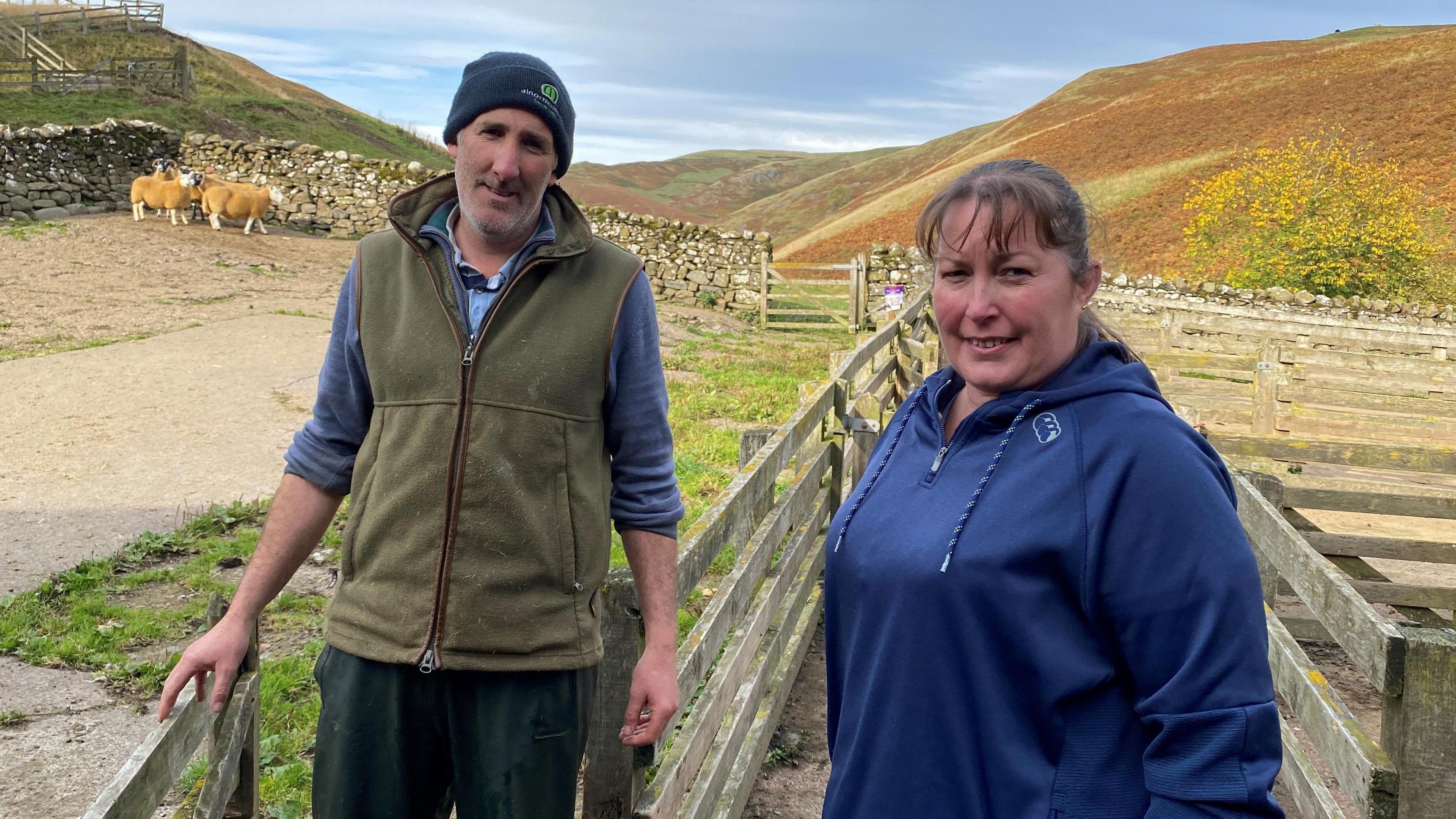
Daniel Wood, whose father and grandfather were shepherds, lives with his wife Sam Wood at Shillmoor
But change is on the way.
Northern Powergrid has been given permission from the Northumberland National Park Authority, external to connect three telecommunication masts in the valley to mains electricity.
In doing so, it will also connect 15 properties which are currently off-grid.
The project is being funded by the Home Office and Ministry of Defence which owns the land.
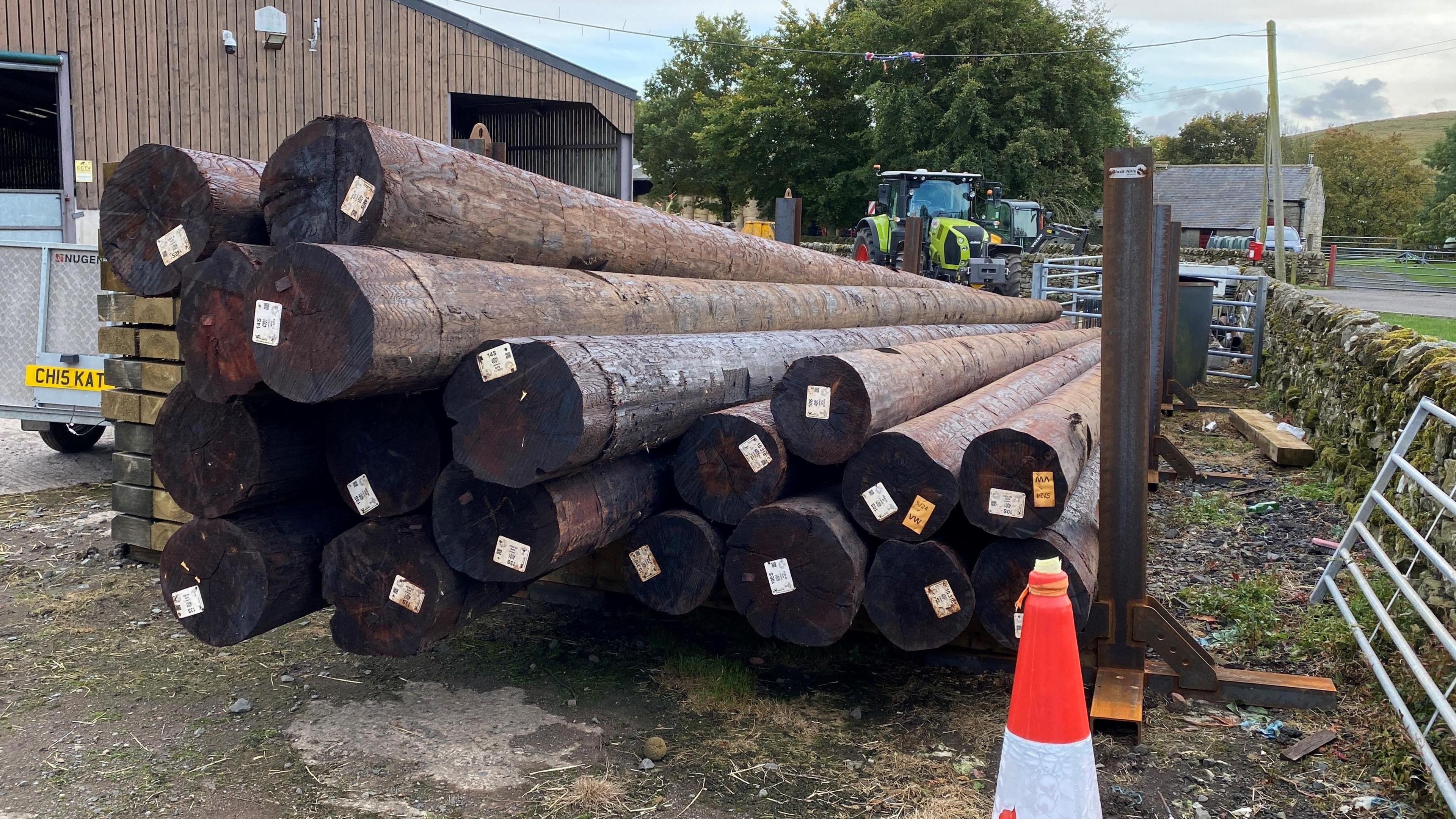
Northumberland National Park Authority wanted the cables buried but some will now go on poles
Head of planning and policy for the Northumberland National Park Authority (NNPA) Susannah Buylla says she was "delighted" work had begun.
"Obviously we began this process wanting very much to support the valley in getting mains electricity.
"But it's such a sensitive location, with the cables going across sites of special scientific interest and with important populations of birds," she adds.
NNPA wanted all the lines buried but a compromise was agreed which will see 7.5 miles (12km) carried by poles and three miles (4.7km) run underground.
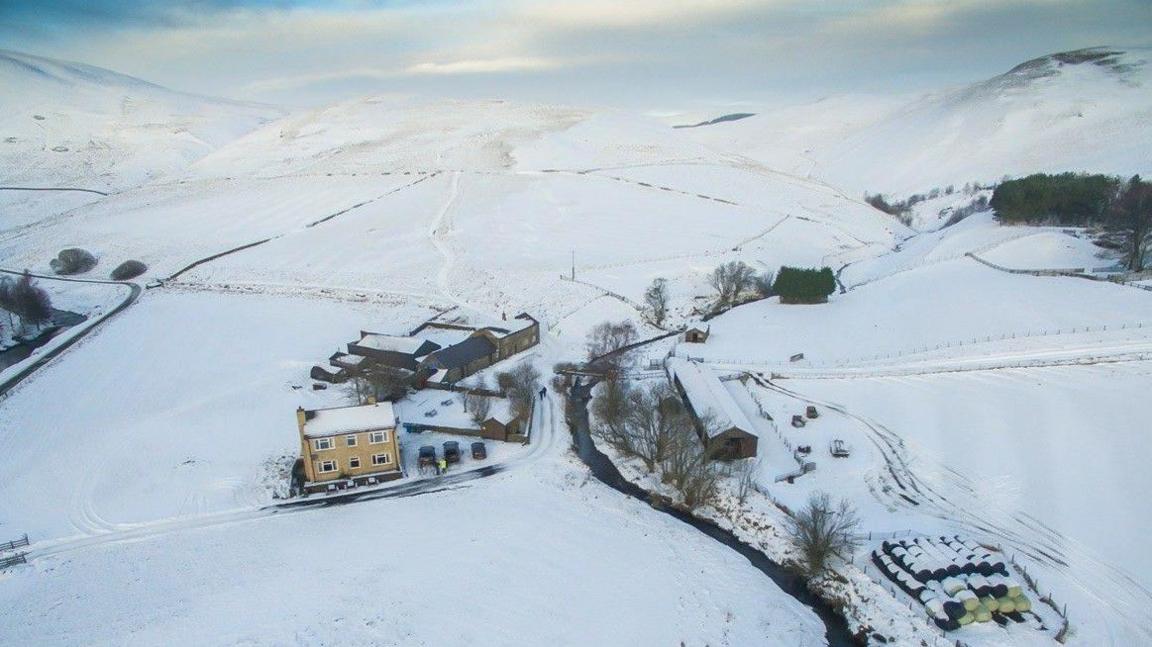
The farms can be cut off for days during winter
The valley is also an area peppered with important archaeological sites.
It was a place where many more people lived in the medieval period, with villages and a mill at Barrowburn, external built by Cistercian monks from Newminster Abbey near Morpeth.
Richard Carlton, a Newcastle University academic who is advising Northern Powergrid, will be keeping a watchful eye on the work.
"We worked on an archaeological assessment to tell them what was here and along the route of the cable," he says, adding: "Our job was to point those things out so a mitigation strategy could be put in place so nothing of importance will be damaged."
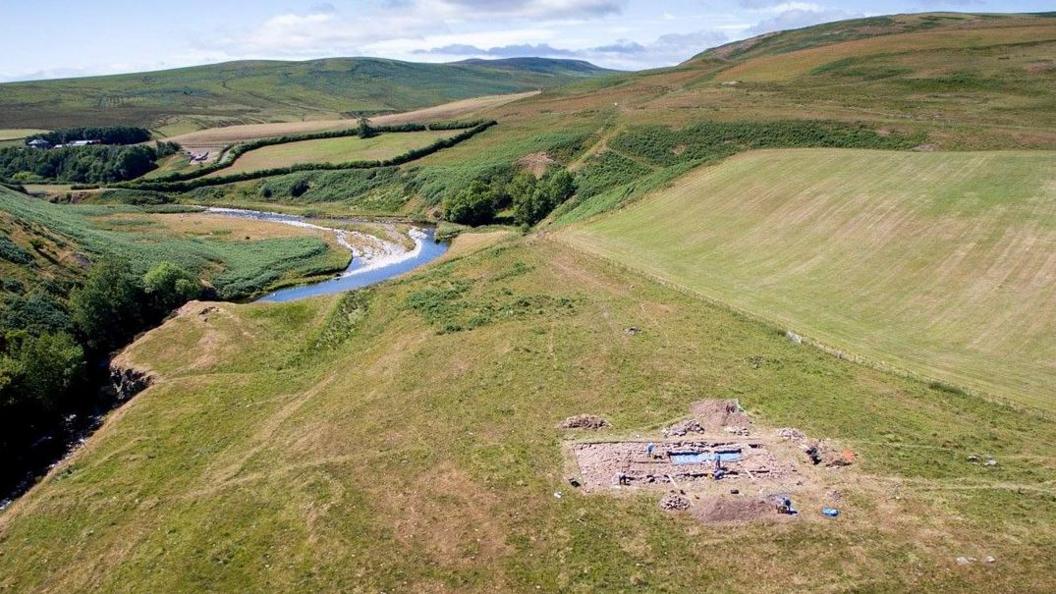
The new lines pass through a valley which has a number of important archaeological sites
The arrival of mains electricity will be a welcome step and the community is already planning a big party for when they are finally connected.
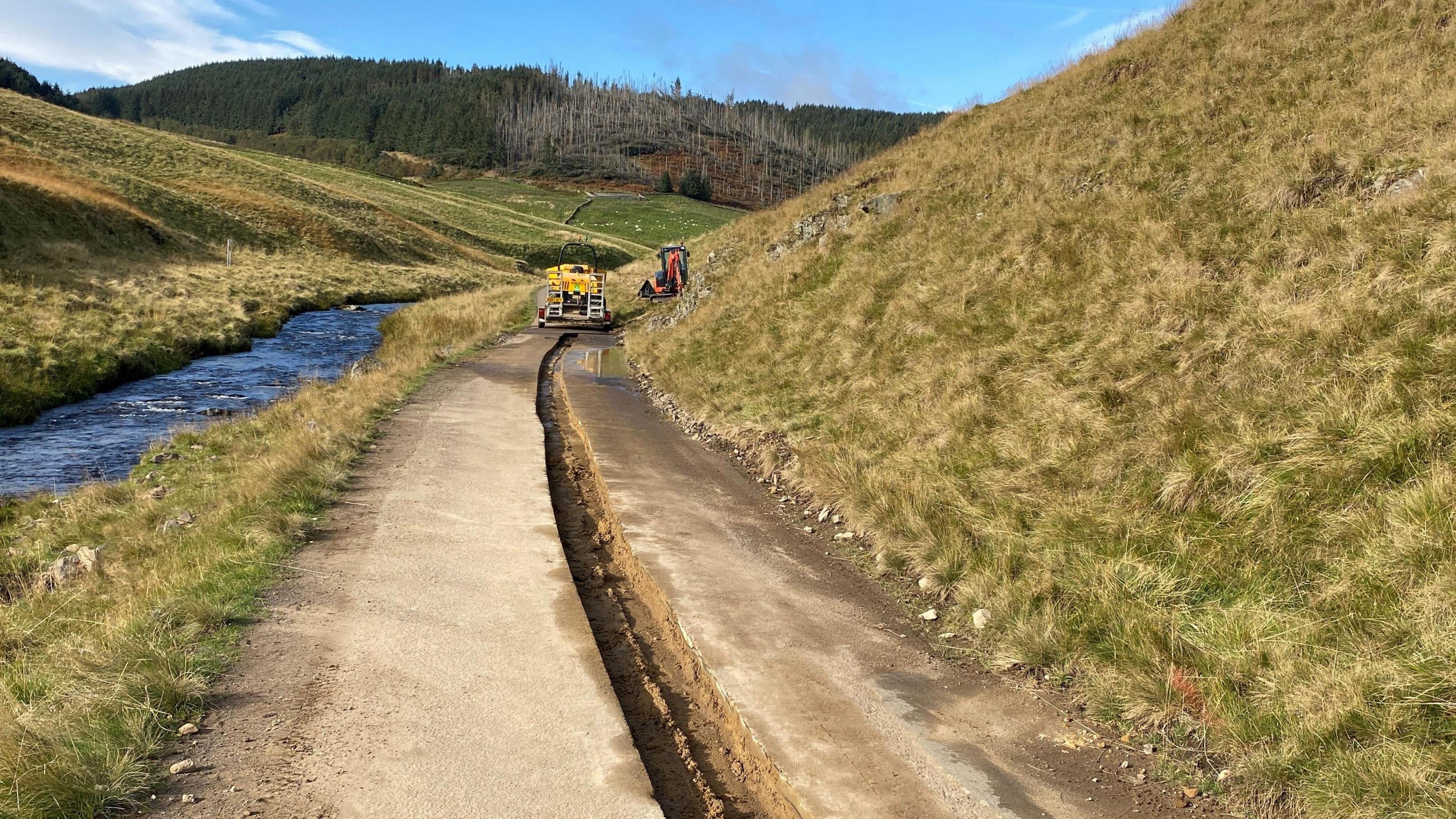
Work has began digging trenches in the areas where the lines will be buried
Sam Wood has been at the forefront of the community's long campaign to get connected.
"When I search off-grid on my computer all that comes up are connection schemes in Africa and India," she said.
"This is a wealthy country, we pay as much tax as anyone else if not more, but we've got horrendous roads, terrible broadband, no mobile phone coverage, we get cut off in the winter, this is really long overdue.
"We feel like we are living on the edge of society."
Follow BBC North East on X, external, Facebook, external, Nextdoor, external and Instagram, external. Send your story ideas to northeastandcumbria@bbc.co.uk.
Related topics
More stories from BBC North East and Cumbria
- Published16 May 2024
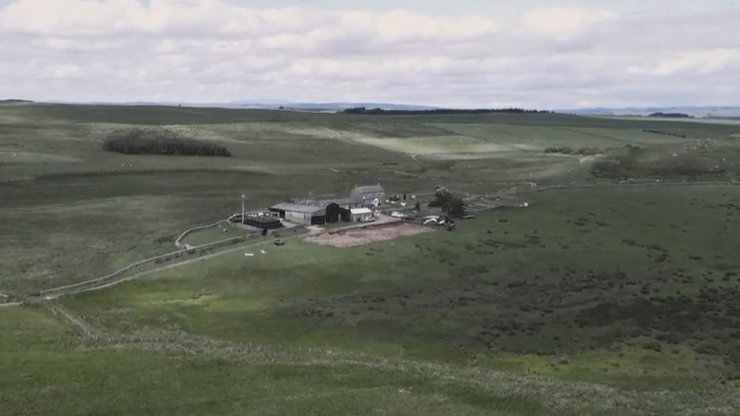
- Published10 April 2023
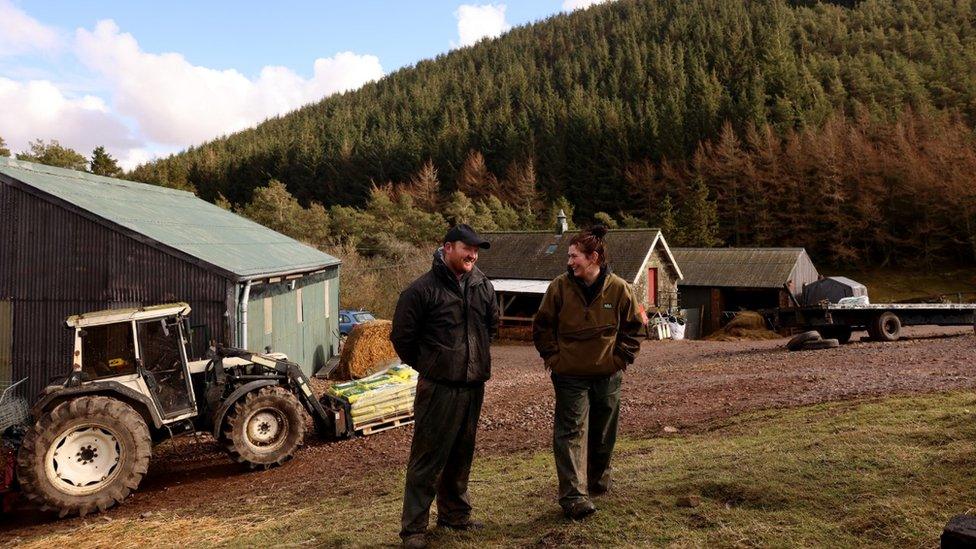
- Published27 April 2024
